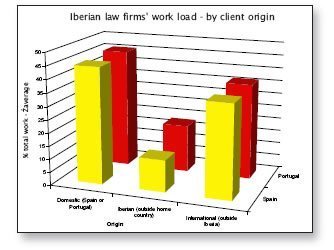Brazil’s connection to the arbitration world – PLMJ
The rising demand for arbitration expertise in Brazil offers opportunities for Portuguese lawyers both inside and outside of the country, says José Miguel Judice, a founding partner of PLMJ in Lisbon.
Arbitrajes que incluyen partes brasileñas son las más habituales en Latinoamérica y representa la cuarta característica más frecuente en el ámbito internacional.
The increasing internationalisation of the Brazilian economy, along with a growing diaspora of Brazilian businesses and executives, is helping to increase interest and demand for arbitration expertise both within and outside of the country, says José Miguel Judice, at PLMJ.
“According to the International Chamber of Commerce (ICC), arbitrations with Brazilian parties are now its fourth largest area of work.
But while the country clearly has a large number of experienced and qualified practitioners, often in a dispute situation involving a non-Brazilian party there remains a desire to seek an arbitrator from a neutral third country.”
Portuguese lawyers, he says, are well placed to step in not merely because of the obvious language and cultural connections, and the flow of expertise between the two countries, but also because they can help bridge commercial worlds.
“We are still seeing a lot of European investment into Brazil, but flows are also going the other way, to Europe and to lusophone markets such as Angola or Mozambique, where there is a natural civil law link between Brazil and Portugal.”
Domestic growth The scale of the investment opportunities that have emerged in Brazil and the problems that then arise is also helping to drive international demand for arbitration expertise, believes Judice.

“The opening up and growth of the Brazilian economy is prompting new levels of investor interest, much of which is being focused beyond the usual, more sophisticated, commercial centres. But the multinational nature of the businesses involved means also however that they will almost always prefer to refer a disputes to arbitration than face the prospect of litigating in a local national court.”
Statistics by the ICC demonstrate that the use of commercial arbitration in Brazil doubled between 2005 and 2006, placing it in first position in Latin America and, perhaps surprisingly, fourth in the world. Such an increase, he says, has been encouraged by the 1996 Brazilian Arbitration Act, but also its signing of the New York Convention on the Enforcement of Arbitration Awards in 2002, and more recently judicial decisions validating the Government’s ability to enter into arbitration.
“After some debate there is now no doubt that arbitration is a legal and valid form of dispute resolution in Brazil, but other factors are also driving parties towards its use, including a degree of dissatisfaction with the efficiency of the domestic courts – while the professional approach of the Rio de Janeiro and Sao Paulo courts towards arbitration have clearly helped.”
Advocate Judice notes also the strength of the domestic Brazilian arbitration community as an important advocate of its use, and their encouragement of Brazilian companies to look towards alternative forms of dispute resolution not only for their growing number of international disputes but also domestic issues.
Significant also, he says, has been the approach of the Brazilian government towards arbitration.
“Unlike other countries in the region, such as Venezuela or Argentina, Brazil has a solid and stable democracy and in which there is no political pressure to control the judiciary, or to circumvent contracts with constitutional technicalities.”
Nonetheless, he highlights that barriers do still persist in the use of arbitration to resolve investment treaty or inter-governmental disputes. Brazil is significantly not yet a signatory to the Washington Convention or a member of ICSID.
The issue is though a polemic one for many in Brazil, he suggests, but sentiment towards arbitration in such matters is slowly changing with the increasing international ambition of Brazilian businesses, and their inability to resort to forums such as ICSID to resolve disputes involving neighbouring countries.
“Bolivia, for example, has stated that it will not recognise arbitration clauses entered into by Brazilian companies investing there through subsidiaries registered in ICSID-signatory countries. Although it will take time, there is growing pressure among Brazil’s multinationals that it must sign up.”
In the mean time, he believes, Portuguese lawyers will nonetheless still find themselves increasingly in demand and at the table helping to resolve Brazilian commercial arbitration disputes wherever they occur in the world












